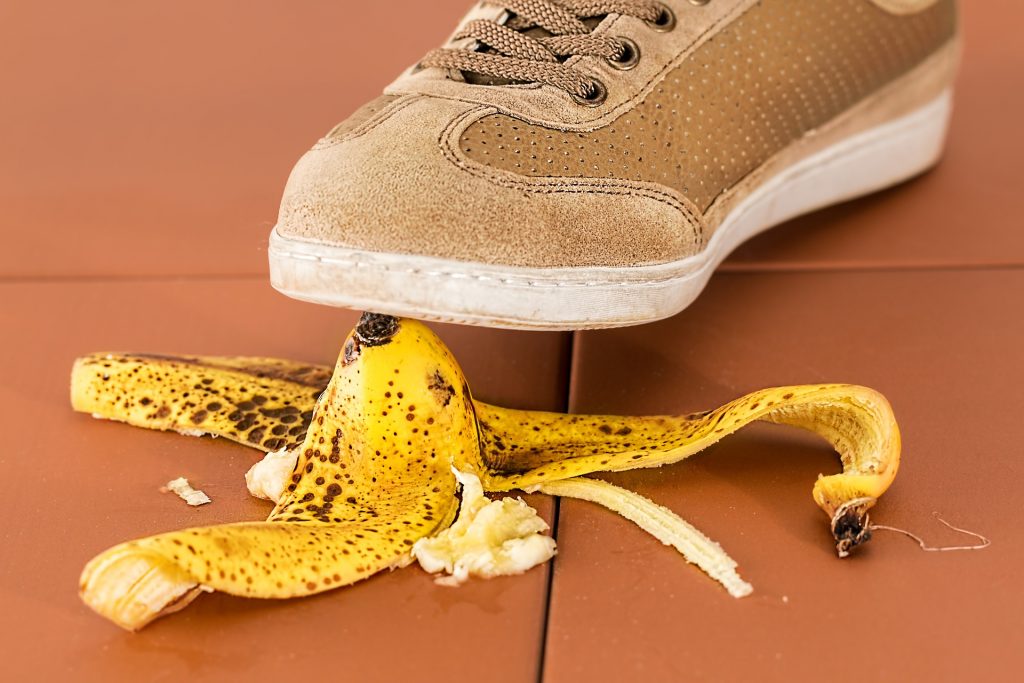In this edition of Grammar Corner, we discuss some of the most widely used grammar errors in the English language. We don’t just correct you, though; we pinpoint exactly why a particular word/phrase/idiom is used incorrectly, while providing the context for each mistake, and then providing the right word/phrase/idiom.
Most of the time, a grammar error occurs because of homophones. Homophones are two words that sound exactly the same, but mean vastly different things. But it’s not just their meaning that’s different; homophones can also function as vastly different parts of speech.
In this edition, we discuss a common grammar error: Peal vs. Peel. Both words are pronounced exactly the same, which lends to their confusion. However, both words have meanings that are completely different to each other, which may lead to the wrong word being used in context.
When to Use Peal

Often, when people use the word “peal”, they’re really trying to say “peel”. Peal is a more specific word for use in specific contexts. As a noun, peal means a loud noise associated with ringing. As a verb, peal is that noise being emitted by someone or something. For example:
As he celebrated his 15th year in jail, Mike started missing the peals of laughter from his comedy shows. He really shouldn’t have made fun of the Supreme Leader all those years ago.
Peals of thunder shook the old house like some kind of a bad, horror movie trope. Still, it gave Wendy the shivers.
Although not as well-known as his French counterpart, the Hunchback of Boggy Bottom Cathedral still managed to create golden peals from the tower bells.
The air was rich with the peals of church bells, the chit-chatter of people speaking Old English, and of course manure. “Finally” Chris said, “my time machine worked!”
The peal of the village bells only meant one thing: the Leaf Orcs were invading again, and this time: they mean business.
-Peal as a noun
The speakers pealed feedback that actually burst Nana’s eardrums as soon as Jenny took the microphone; this is going to be a bad eulogy, Jenny dreaded.
The bells pealed all throughout the afternoon in celebration of Gronk and Basil’s wedding, the first Leaf Orc-Human wedding in over 200 years.
Lightning cracked the sky and thunder pealed through the air; ‘what a great start to summer’ Billy said sarcastically, his little canoe slowly drifting farther away from the shore.
The bells pealed incessantly, making the villagers rush to the cathedral hastily. “Is something the matter?! Are we under attack?!” the Village Elder said breathlessly. “No no, this is just what I like to call an ‘emergency broadcast test’. Pretty nifty!” the Hunchback of Boggy Bottom said.
-Peal as a verb.
When to Use Peel

More often than not, most people are referring to the word “peel” when they’re writing, as this is more commonly used than peal. In most instances, peel is meant as a verb and it means to remove the outer layer of something, whether it’s fruit, vegetable, meat, or anything else. As a noun, it refers to the actual skin of an object. Peel, both as a noun and a verb, can also be used in various phrases. For example:
Johnson narrowly avoided that banana peel on the floor, saving him from an embarrassing 1930’s comedy cliché.
Mother Superior was very unhappy about the paint peels that covered the main cloister’s floor, “dammit Vincent!” she bellowed at the hired hand, “I told you to clean up the peels on the floor after installing the jumbo-tron!”
That orange peel doesn’t look too fresh, are you sure you want to use that in your drink?
-Peel as noun
Sonny Jim peeled the film off the brand-new smartphone he bought. He couldn’t understand the immense satisfaction he got from peeling the entire thing in one go, but there it is.
That speech was so boring, I started peeling off the label on my beer. But soon enough, I was peeling off labels from other people’s beers. It’s become an addiction; I just can’t stop peeling off beer labels.
“I don’t think that’s the right way to peel that” Jane said nervously. “Well, if you would just hold it still,” Bernard said, struggling to keep the still-live possum from escaping, “maybe I wouldn’t have such a hard time peeling it.”
-Peel as verb
As we drove around the neighborhood, we kept our eyes peeled for obvious signs of a good neighborhood: clean streets, well-maintained houses, a lack of tweakers, nice lawns, y’know, the usual stuff.
“Keep your eyes peeled for them coppers!” Carlos said. He didn’t know why he was using a 1920’s mobster voice, but he felt like it commanded respect. –Peel as part of phrase, “keep your eyes peeled” means to watch out or be on the lookout for something.
The truck peeled down the highway like a bat out of hell; that is, the whole trailer was on fire and the horn was making a squeaky sound.
“How’d they get here so fast?!” Carlos said, as he peeled out of the warehouse in his beat-up Datsun, which was no match for the LAPD’s brand-new Diablos.-Peel as part of phrase, “to peel out” means to leave, via some form of vehicle, abruptly and accelerating so rapidly that the tires smoke up and squeal.
Which One to Use: Peal or Peel?
This one is fairly simple: more often than not, most people want to use the word “peel”, usually because the word “peal” is a fairly specific and uncommon word to describe a very niche idea. So, when in doubt, use peel.
















